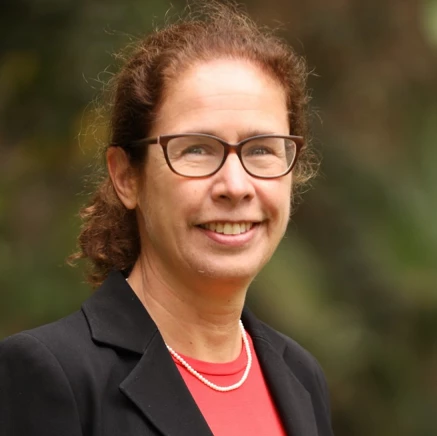Hebrew (pdf)
 Landing a job after college can be difficult anywhere, but it is especially hard in conflict-affected economies, such as Palestine. Joblessness and job insecurity are an unfortunate reality for too many young Palestinians. Unemployment is now approaching 30 percent on average, and remains stubbornly high especially for youth and women. A young person growing up in Palestine has just one-third of the likelihood of gaining employment compared to a young person in Israel.
Landing a job after college can be difficult anywhere, but it is especially hard in conflict-affected economies, such as Palestine. Joblessness and job insecurity are an unfortunate reality for too many young Palestinians. Unemployment is now approaching 30 percent on average, and remains stubbornly high especially for youth and women. A young person growing up in Palestine has just one-third of the likelihood of gaining employment compared to a young person in Israel.
In Gaza, job prospects are even more grim. In that area, electricity is available for only four to six hours a day, and draconian movement restrictions limit what goods can move across borders. Economic activity is severely restricted, driving the youth unemployment rate to about 60 percent.
Women face even higher barriers. The jobs available to women are more limited than those available to men. In addition to social constraints, restrictions on travel, including the uncertainty faced at checkpoints, further contribute to the low female labor-force participation rate, which stands at only 19 percent. A recent World Bank report finds that the probability of joining the labor market for a man who holds a secondary degree is 65 percent, while for a woman this likelihood is only 8 percent.
In short, Palestine is experiencing a worsening jobs crisis. The private sector, which is usually an engine for job growth, has been unable to generate enough jobs to keep pace with the growing population. Despite a highly educated and youthful population, the fragile and conflict-affected environment often scares off private companies from investing in the small territory of nearly 4.5 million people. An investor in search of a supportive environment for doing business would likely opt to invest in a more secure location with lower political risks and greater access to international markets – say, in Dubai as opposed to Ramallah or Gaza City.
In an environment where achieving sustainable results can seem elusive and the myriad of constraints is complex, what can be done to mobilize more private investment to create jobs?
There are no “silver bullets” in development – especially in fragile and conflict-affected economies. Our responsibility, as the World Bank Group, is to encourage new approaches and risk-taking and promote collaboration between the public and private sectors. This is critical to “crowd in” the private capital that is needed to achieve sustainable job creation, poverty reduction and shared prosperity.
Innovation through financing instruments offers an important opportunity to address the jobs challenge and to generate more learning about what works.
________
The World Bank Group would like to acknowledge the generous support of the State and Peacebuilding Fund (SPF), which is financing part of this project. The multi-donor SPF, administered by the World Bank Group, has been the institution’s primary vehicle since 2008 for supporting state and local governance peace-building efforts in fragile and conflict-affected regions. The SPF aims to scale up international engagement in fragile and conflict-affected countries, to promote cross-cutting and innovative approaches, and to foster strategic partnerships.
 Landing a job after college can be difficult anywhere, but it is especially hard in conflict-affected economies, such as Palestine. Joblessness and job insecurity are an unfortunate reality for too many young Palestinians. Unemployment is now approaching 30 percent on average, and remains stubbornly high especially for youth and women. A young person growing up in Palestine has just one-third of the likelihood of gaining employment compared to a young person in Israel.
Landing a job after college can be difficult anywhere, but it is especially hard in conflict-affected economies, such as Palestine. Joblessness and job insecurity are an unfortunate reality for too many young Palestinians. Unemployment is now approaching 30 percent on average, and remains stubbornly high especially for youth and women. A young person growing up in Palestine has just one-third of the likelihood of gaining employment compared to a young person in Israel.
In Gaza, job prospects are even more grim. In that area, electricity is available for only four to six hours a day, and draconian movement restrictions limit what goods can move across borders. Economic activity is severely restricted, driving the youth unemployment rate to about 60 percent.
Women face even higher barriers. The jobs available to women are more limited than those available to men. In addition to social constraints, restrictions on travel, including the uncertainty faced at checkpoints, further contribute to the low female labor-force participation rate, which stands at only 19 percent. A recent World Bank report finds that the probability of joining the labor market for a man who holds a secondary degree is 65 percent, while for a woman this likelihood is only 8 percent.
In short, Palestine is experiencing a worsening jobs crisis. The private sector, which is usually an engine for job growth, has been unable to generate enough jobs to keep pace with the growing population. Despite a highly educated and youthful population, the fragile and conflict-affected environment often scares off private companies from investing in the small territory of nearly 4.5 million people. An investor in search of a supportive environment for doing business would likely opt to invest in a more secure location with lower political risks and greater access to international markets – say, in Dubai as opposed to Ramallah or Gaza City.
In an environment where achieving sustainable results can seem elusive and the myriad of constraints is complex, what can be done to mobilize more private investment to create jobs?
- More trust and better partnerships between the government and private sector
- A significant shift in strategy by donors, like the World Bank Group, to support innovative approaches and instruments that can help catalyze private investment
- Startups along the early-stage-financing journey: While the entrepreneurial spirit is alive and well in Palestine, many promising startups fail prematurely, before reaching the doorstep of early-stage investors, due to challenging market conditions. More support is needed to build the pipelines of early-stage investors and get startups investment-ready.
- Larger private-sector investments in key sectors: Spurring more traditional employment in medium-sized and larger companies is just as important as supporting jobs at startups. Co-financing partnerships with the private sector, IFC and MIGA can help incentivize investment and mitigate risks. We are looking at testing this approach with a project to support job creation in Gaza.
- Training, skill development and job-matching for youth and women: It is also critical to ensure that graduates have the skills needed to gain access to the jobs that are created. This will be supported through a new instrument – a Development Impact Bond (DIB) – in which private investors help finance the intervention and are repaid if positive outcomes are achieved. Because investors are only repaid if the outcomes are achieved, the incentive structure focuses on outcomes rather than on program expenditures and inputs.
There are no “silver bullets” in development – especially in fragile and conflict-affected economies. Our responsibility, as the World Bank Group, is to encourage new approaches and risk-taking and promote collaboration between the public and private sectors. This is critical to “crowd in” the private capital that is needed to achieve sustainable job creation, poverty reduction and shared prosperity.
Innovation through financing instruments offers an important opportunity to address the jobs challenge and to generate more learning about what works.
________
The World Bank Group would like to acknowledge the generous support of the State and Peacebuilding Fund (SPF), which is financing part of this project. The multi-donor SPF, administered by the World Bank Group, has been the institution’s primary vehicle since 2008 for supporting state and local governance peace-building efforts in fragile and conflict-affected regions. The SPF aims to scale up international engagement in fragile and conflict-affected countries, to promote cross-cutting and innovative approaches, and to foster strategic partnerships.



Join the Conversation